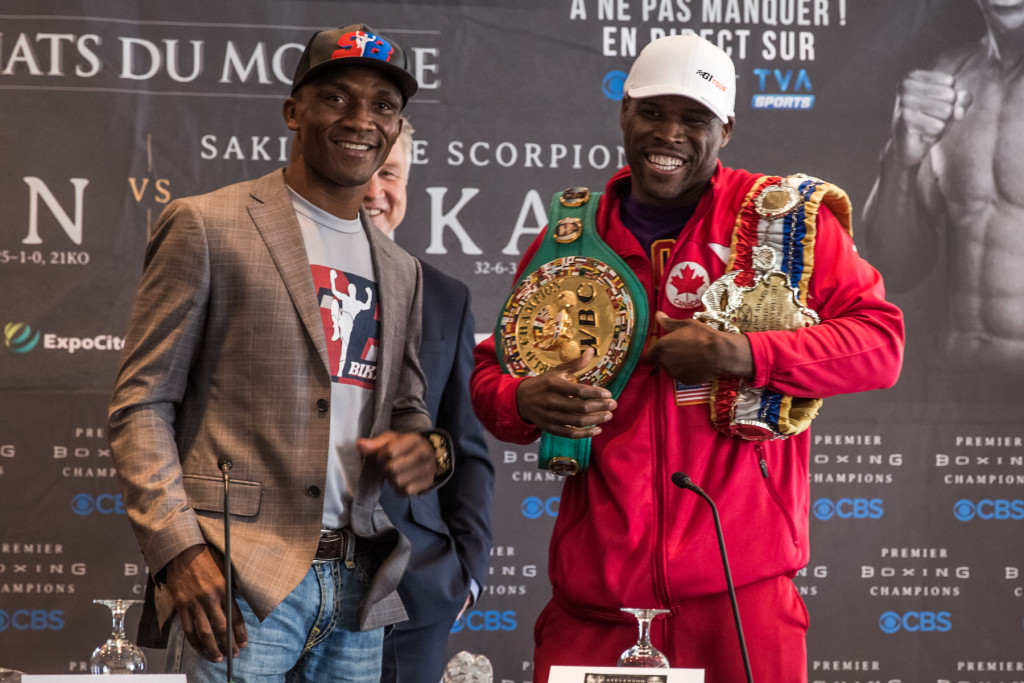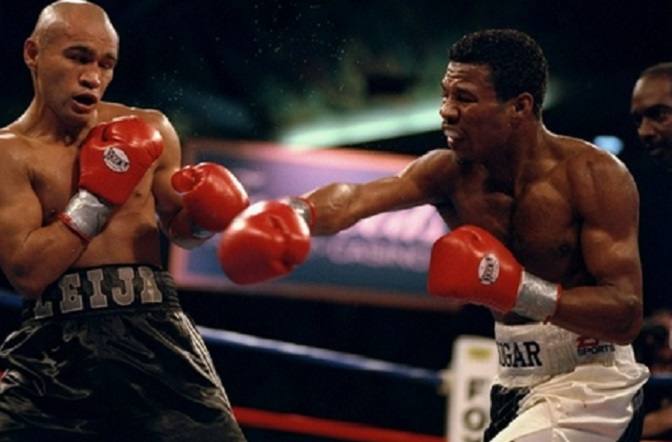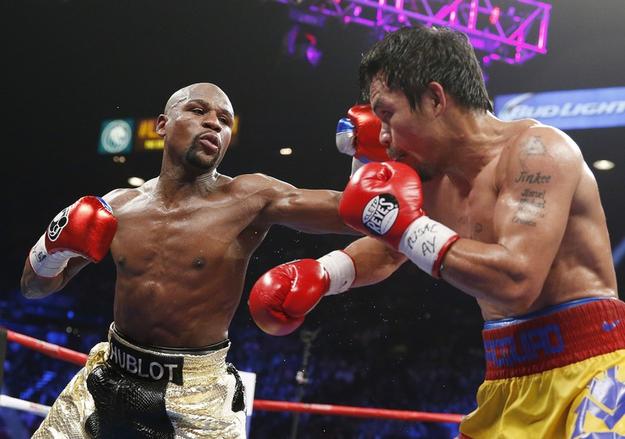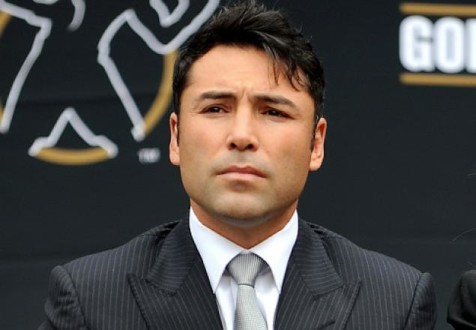For Legacy And Money (Mostly Money)
Montreal’s Adonis Stevenson, the Kronk-schooled southpaw whose pulverizing power is, at times, offset by his patience, faces Sakio Bika tomorrow in Quebec City. It is the second major show in Al Haymon’s Premier Boxing Champions series and will appear on CBS television in the afternoon (saving us, mercifully, from another night with Marv Albert). Stevenson vs Bika hasn’t energized fans because there are far more desirable opponents for ‘Superman’. Some of us want him to fight Jean Pascal, while all of us want him to fight Sergey Kovalev. Maybe, rather than representing a payday, Bika is a necessary and potentially difficult juncture before Stevenson’s confrontation with the elite. For those of us needing a plot, let Bika be a preparatory trial on Adonis’ march towards the division’s inner sanctum.
Stevenson (25-1) is Canada’s finest boxer but he is not its most popular. He’s been vilified here for his past, and censured by those unhappy with his competition. After surprising Chad Dawson with a voltaic left hand which made him the lineal light heavyweight champion that one summer night in Montreal, Stevenson has boxed second tier opponents Tavoris Cloud, Tony Bellew, Andrezj Fonfara, and most recently, the little known and lowly regarded Dmitry Sukhotsky.
It would appear Bika (32-6-3) is not significantly more advanced than any of them, but he is probably more durable. 35-years-old and with skin that could repel a medieval lance, the Cameroonian-Australian has loads of professional experience, having shared the ring with Anthony Dirrell twice, Andre Ward, Joe Calzaghe, and Lucian Bute. He is obdurately tough and won’t wilt under Stevenson’s power. And, like most hard men, he doesn’t box beautifully. Bika will foul and occasionally throw questionable shots. If Stevenson’s violence has a Caravaggio-like aesthetic — his powerful attacks sudden and dramatic — Bika’s is that painted by someone with errant technique but a lucid vision of what to express.
Why fight Bika? Presumably it’s because Adonis wants to get paid, and his hesitancy to meet Kovalev might trace to the same capitalist ethos. Stevenson is 37-years-old and had a relatively late start as a professional. His body and head probably haven’t experienced the same attrition as that of other fighters his age, but it’s sensible to make good on one’s earning potential now, given the uncertainty of anyone’s future in boxing. Bika is at least a credible opponent who provides a fat pay-check for an Al Haymon fighter. And assuming he wins, Adonis can then leverage this victory in his pursuit of more dollars against better opponents.
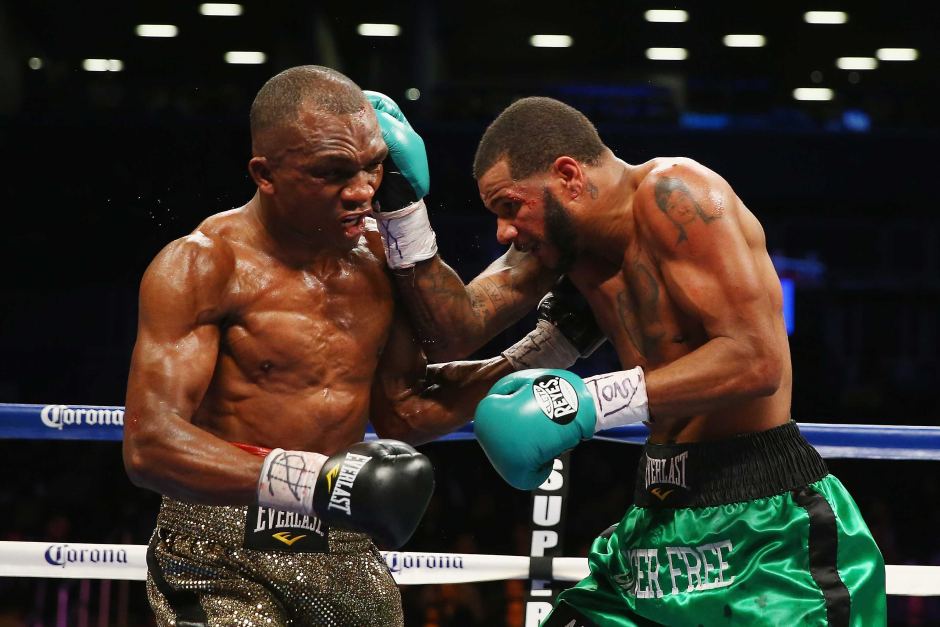
But Bika will also introduce Stevenson to discomfort. To reiterate, he is the sort of fighter who would rather leave the ring on a stretcher than take a knee. Like Antonio Margarito, he embraces punishment with a ghoulish zeal. For people like this, whose psychic lives have little space for sensitivity, giving up is a foreign proposition. It makes you wonder whether, in Bika’s own hierarchy of boxing attributes, toughness ranks higher than technique. Between the two, which means more to him? One senses the hard-headed Bika would prefer to bank on will than skill.
Thus Stevenson’s skills are clearly superior to Bika’s, and despite the challenger’s claim to the contrary, Adonis has far greater pop. The champion is a patient power-counterpuncher with the deft feet of a ballet graduate. Sometimes he is too patient, waiting and waiting for the chance to land the sort of seismic shot that paralyzed Dawson. Knocking out Bika, who has never been stopped, might be an imprudent plan. Stevenson cannot head hunt against someone who will attack him in volume. He must alternate his offense by also targeting the body.
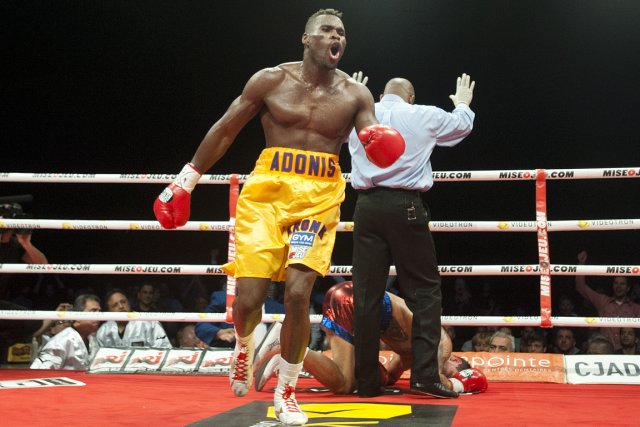
Conversely, Bika will look to close the range to where he, the slugger, can disadvantage Stevenson, the puncher. He would love for the fight to become one of his beastly and awkward deformities, where, often boxing off-balance, he wildly sticks out lefts and rights while trying to transform his opponent into an amorphous, fleshy lump. The ambiance at the Colisée Pepsi will register his success. If the fight proceeds Bika’s way and it’s beset by clinching, holding, fouling, and ‘involuntary’ head clashes, expect groans, jeering, and catcalls. But if Adonis has things his way, prepare for stretches of silence that will be punctured whenever ‘Superman’ lands one of his erasure blows.
If there’s an obvious question mark about Adonis Stevenson, it is how much punishment he can sustain. He was knocked down against Fonfara and was stopped earlier in his career by Darnell Boone. While we know Jean Pascal’s chin won’t betray him, Stevenson’s jaw is still unproven. Bika has nonsensically presented himself as the more powerful of the two, but while not an explosive puncher he throws with requisite authority to touch Adonis up. Can he possibly get him out of there? It’s doubtful. Bika might win a few rounds but Stevenson’s skills should prevail. He cannot spend rounds dancing, though, in love with his own artfulness as he waits to land the ideal shot. Adonis must engage.
Sakio Bika is on the continuum of Adonis Stevenson’s career but he’s far from its endpoint. He’s a hardscrabble opponent for the Montrealer, a stepping stone, on the champion’s way to a more lucrative fight. Stevenson should win so long as he doesn’t get mired in the sludge Bika usually makes of boxing matches, and facing him will prepare Adonis for more skillful scrappers. In a practical sense, fights with men of Bika’s quality are necessary if one’s objective is to make money, a fact that doesn’t please keyboard-wielding purists but appeals to realists. There just cannot be too many Sakio Bikas if Stevenson wants posterity to celebrate him as a boxer. His in-ring achievements, alone, will define him in the end. Money talks loudest in the present, but the echoes fade in the long corridors of history.
— Eliott McCormick


